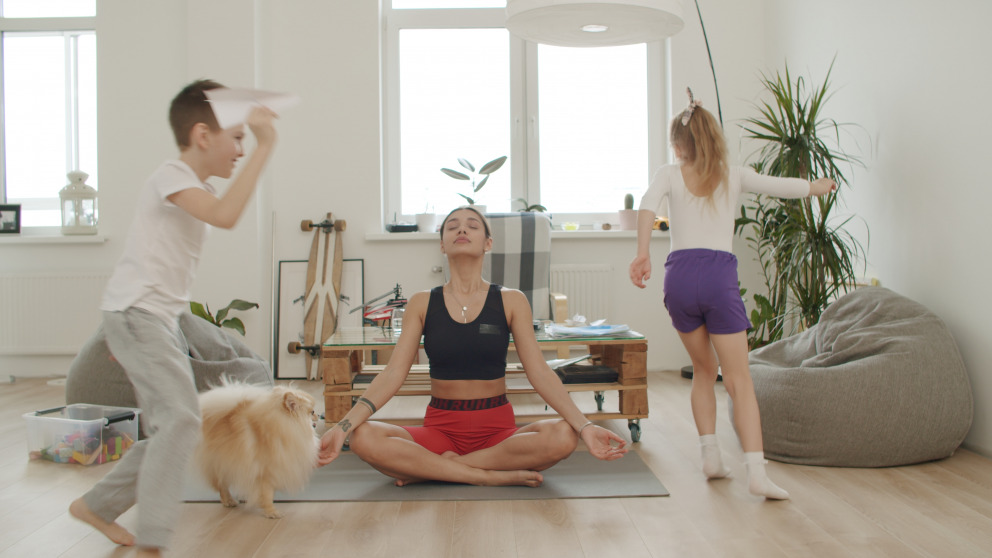On salami and sustainable development
10.12.2020

Thoughts inspired by a radio interview
In 1914 prolific composer Max Reger took refuge at a sanatorium in South Tyrol in the hope of treating his chronic fatigue and obesity. Under orders from his physician to avoid work and follow a strict diet, he immediately requested a delivery of blank manuscript paper and began to hoard salami beneath his bed. His sabbatical proved a failure and the composer died just two years later, aged forty-three. Radio presenter Jörg Biesler recounted this tale following a piece of music by Reger during a matinée programme that focused on Weitermachen ("Carry on") (SWR2) in which we discussed sustainability and environmental psychology. Why is it that we are so slow to change our ways – despite all that we know and in the face of the unfolding climate and biodiversity crises and other socio-ecological challenges?
Will organic farming be our salvation?
The same disregard with which Reger brought himself to the brink of collapse – overtaxing his body with too much work, too much food and too much alcohol – can be seen in the way that we treat ourselves and our world. And, like Reger, we are well aware of what it would take to turn things around. Over the years, word has got around that we shouldn't fly or drive of it can be helped, that a vegetarian or vegan diet would be healthier for people and planet, that we should avoid plastic packaging, use responsibly produced products and textiles made of natural materials. Our working days, so it would seem, should be sandwiched between morning meditation and evening yoga classes; our consumer goods home-grown, home-sewn, recycled or borrowed. The sustainable lifestyle is a vision that promises salvation – the question is: who is willing and able to adopt this way of life 24/7? The number of people living sustainably is probably greater than you would expect. But for most people this lifestyle is not a matter of choice – instead, it is imposed on people in the Global South by the actions and consumption patterns of people in the Global North. But why do we find it so difficult here in the Global North to change our ways when they are so clearly a burden on our planet?
On the one hand, we are all too often creatures of habit. Habits simplify everyday life and enable us to interact with the world around us without considering the best course of action or solution in every situation. Habits become established because they work in most cases. We are often only aware of them when they stop working, fail to deliver the desired results or have undesirable side effects. If we were to examine our habits, we would find that many of the things that we do every day are not especially sustainable.
On the other hand, here in the Global North, we have an abundance of goods and services at our disposal. Unfortunately, they are seldom sustainable and their prices do not reflect their true socio-environmental costs, which are borne by the public in the form of climate change, biodiversity loss, polluted ecosystems, and growing social inequality. For now, here in Germany and throughout the Global North, an unsustainable lifestyle is easier to pursue than one that would create a better world for all.
Is it possible to live sustainably in an unsustainable world?
With the pandemic hanging over our heads, you can count yourself lucky to have a job that lets you make ends meet. And in return for this privilege, we spend hours in traffic jams and drive miles to work before, worn out and wound up, rushing through a discount store where we fill our bags with things that we don't really need all wrapped up in single-use plastic packaging that we have vowed to ditch a million times already. The next organic supermarket or zero waste store always seems to be too far away. For most people shopping there is a treat rather than an everyday (and affordable) affair. And for many renters, a vegetable garden or rooftop solar system will remain a bold yet almost certainly unattainable dream.
Hoping to do something good for ourselves and our families, we book another beachside vacation at some far-flung destination or buy a new supersized TV or a bigger and more comfortable car that might make the journey to work more bearable. All this and more promises to make our lives easier, more enjoyable, and worth living. The only things that could hold us back would be a glance at our bank account or the conscious decision to change one's consumption practices. After all, many people might tell themselves: the airliner will take that flight either way, that supersized TV will roll off the production line whether you buy it or not and the cow behind that steak has already been slaughtered. It would be easy to think that individual decisions don't make a difference.
Change lifestyles and consumption patterns together
Yes, living sustainably can be less convenient. At times it can even be uncomfortable. But every decision counts. If we all believe that our actions have little or no impact, then millions and billions of people will continue to live unsustainably. And it is our collective actions and the multitude of individual behaviours that are so crucial to our efforts to grapple with the complex global challenges we face today. And that's why every decision counts – whether in our private lives, at work, or in public life. When we join forces with others, we can make a big difference. It is also easier to break with old habits and establish new ones together, to support each other and share ideas.
If we wish to make sustainable living easier, we need a broader range of sustainable goods and services that people can afford. And they will need to be more practical and more appealing than their non-sustainable alternatives. This can be achieved by promoting regional, seasonal, and organic production and by ensuring that prices reflect the true costs of goods and services. The energy transition, the greening of agriculture and the shift towards sustainable consumption and production are in full swing. They are accompanied by discussions about an unconditional basic income.
It can seem paradoxical that we are striving to transform entire infrastructures with such haste even as the call grows louder for us to slow down in everyday life, consume less, and take more time for things that really matter in life. One of the more mundane insights of environmental psychology is that certain moments – a relocation, an important milestone in life or a new job – offer a window of opportunity to change our habits. Perhaps the coronavirus crisis is one such a window of opportunity; a chance for us as a society to rethink our routines rather than continuing with business-as-usual. When Max Reger collapsed from exhaustion, he should have taken this as a signal perhaps, a warning that it was time to change his ways. Sadly, he didn't. But as a sustainability scientist I console myself with the thought that at least his beloved salami was likely to have been a regional and organic product…
